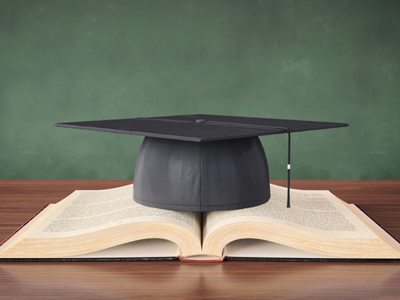
We Live and Learn - Schools and Learning Terms
Quiz playing is a wonderful way to increase your knowledge of English as a Second Language. Remember that all of our ESL quizzes have titles that are both friendly and technical at the same time… In the case of this quiz you might like to tell your friends about “We Live and Learn” but no doubt your teachers will talk about the “Confidence Words and Terms quiz”! If you hear a technical term and you want to find a quiz about the subject then just look through the list of quiz titles until you find what you need.
It is an English proverb to say - especially if we have just dealt with some difficult experience - 'We live and learn'! This quiz will teach you all about the terms used in schools and learning.
Here are some questions on some words and terms to check how confident you are with the language we use to describe schools and the learning process.
Most students at a college or university ~ when they are aged about 20 ~ are probably ... ... who are 'reading' (or studying) for ... ... .
It is accepted as a practical tradition by most people, that children who go to most schools in Britain ... ... wear a uniform.
Traditionally, a high-school student should arrive for the day with a minimum set of equipment including: ...
Learning about language is usually known as ... ... , and learning about numbers is called ... ... .
The type of school where most children start their education is called a ... ... School.
Many secondary schools ~ and employers ~ expect students in their 'mid-teens' to achieve good grades in five subjects at the GCSE exams.
The usual subjects in which this level should be reached are: ... ...
In mathematics, sometimes we just have to guess a number and see if it works out right in the calculation. If it isn't right, we try again with a slightly different number (bigger or smaller) until we find the right one.
Back in the 'bad old days' this method was called ' ... ... ', but now we call it ' ... ... ' !
'Trial and error' was a perfectly good description, because anyone is likely to make some mistakes on the way to reaching the right answer. As long as you were sensible enough to recognise the mistakes, and move onwards the right way from them, there was nothing deeply 'wrong' about this method ... apart (of course) from a few well-intentioned wrong number-values as you followed the process.
But then the educationalists felt that it was also wrong (!) to suggest that children 'ought' to make mistakes, even if this was part of the very way to progress towards the right answer. So we can't call the method 'trial and error' any more; nowadays it's 'trial and improvement', which sounds a lot more positive. Yet there wouldn't be any 'improvement' ... unless there were a less-than-perfect earlier guess, to be improved upon!
In a much broader sense, this is an interesting example of how language changes, and how tastes and public opinions and use of language can change. A language is a living thing, used every day by human beings, and we human beings can be 'a funny lot' ... the English just as much as anyone else! It can do you no harm to be aware that language is changing and developing, in little and other ways, as time goes by. Let's hope that more-than-not of that is 'improvement'!
The four main skills in using a language (your own, or anyone else's) are listening, ... ... , ... ... and ... ... .
All the verbs in Answer 4 are spelt wrong.
Most teachers these days are aware that students are most likely to remember things when they have been ... ...
The techniques and discipline of putting full-stops, question marks, speech marks etc. correctly into your text are known as ... ... .
Ready for more?
not all...
quizzers. Try to win a coveted spot on our Hall of Fame Page.







